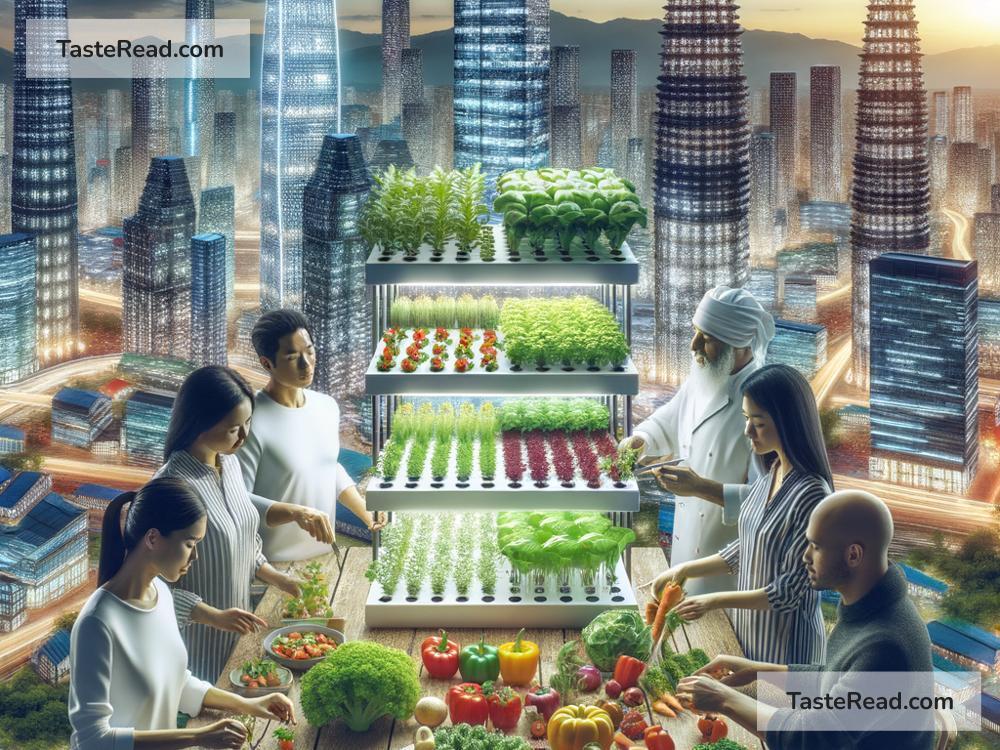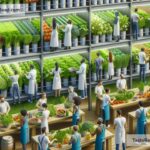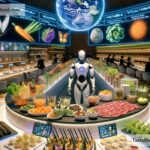The Future of Food: Working Together for a Tastier Tomorrow
As the world continues to grow and change, one thing always stays important: food. It has the power to bring people together, nourish our bodies, and connect cultures. But as populations rise and environmental challenges grow, the future of food is becoming an urgent topic. How will we feed everyone on the planet, while protecting its health? The answer lies in innovation and global teamwork.
A New Era of Food Innovation
The future of food isn’t just about farming—it’s about using science, technology, and creativity to make food better for people and the planet. Scientists and researchers are already developing exciting ways to grow sustainable food and reduce waste. Here are some examples:
-
Growing Meat Without Farms – Companies are now producing lab-grown meat, made from real animal cells. This means we might be able to enjoy burgers and steaks without raising animals or harming the environment. It could also reduce greenhouse gas emissions, which are contributing to climate change.
-
Vertical Farming – Instead of growing crops in wide-open fields that use up space and natural resources, vertical farms allow food to grow indoors in stacked layers. These farms use fewer pesticides, less water, and can be built almost anywhere—even in the middle of cities.
-
Plant-Based Proteins – With a focus on sustainability, plant-based foods like veggie burgers and dairy-free milk are becoming more popular. These alternatives can reduce the environmental impact of food production while still being tasty and nutritious.
-
Using Algae and Bugs – While it might sound unusual, scientists are exploring algae and insects as food sources. Both are packed with nutrients and could be a sustainable option in the future.
-
Reducing Food Waste – Technology is helping food systems become smarter. For example, apps now exist to connect restaurants and grocery stores with people in need, ensuring excess food doesn’t go to waste. Innovations in packaging and storage are also helping food stay fresh longer.
These ideas may sound futuristic, but many of them are already becoming reality. Still, achieving a successful future for food requires more than new inventions—it demands global cooperation.
Why Collaboration Matters
Food is a global issue. Every country relies on the planet’s resources to grow crops, raise animals, and distribute food. Yet, food supply problems don’t affect every country equally. In some places, people struggle with hunger, while in others there’s an abundance of food. Addressing these challenges isn’t something one group or nation can solve alone—it requires teamwork across borders.
Tackling Hunger Together
Around 800 million people worldwide don’t have enough to eat. That’s a number that’s hard to imagine, but it’s a pressing problem we must solve. Governments, nonprofit organizations, and companies worldwide are working together to ensure everyone has access to food.
For example, global programs like the United Nations’ World Food Programme deliver emergency food supplies to areas hit by droughts, conflicts, or natural disasters. Charities and local communities also play a huge role in helping farmers in poorer countries grow food more effectively, with better tools and techniques.
Sharing Knowledge and Technology
Collaboration can also come through shared knowledge. Universities, research institutes, and companies in countries with advanced technology are finding ways to share their discoveries with less developed regions. For instance, agricultural technology, like drought-resistant seeds or weather prediction tools, can make farming easier in areas facing harsh climates.
Additionally, technology helps connect the world. Farmers across the globe can use smartphones and apps to learn the best farming practices, connect with buyers, or monitor their crops. These tools can make a huge difference for small-scale farmers who don’t have the same resources as large farming companies.
Protecting the Planet Together
The way we produce food also affects the planet. Agriculture uses a lot of water, contributes to deforestation, and adds greenhouse gases to the atmosphere. If we don’t change, climate change could cause even bigger food shortages in the future.
Collaboration is key here, too. Countries, organizations, and individuals need to work together to reduce farming’s impact on the environment. Agreements like the Paris Climate Accord bring nations together to address the global challenges of climate change, including how it affects food production.
How You Can Help
You might think this level of global collaboration is out of your hands, but you can still make a difference. Here are some simple ways you can help secure the future of food:
-
Eat Sustainably – Try to include more plant-based meals in your diet. Reducing your meat consumption, even slightly, can make a big impact.
-
Reduce Food Waste – Only buy what you need and try not to throw food away. Get creative with meal planning, and use leftovers when possible.
-
Support Local Farmers – Buying from local farms can reduce food transportation emissions and support small-scale agriculture.
-
Learn and Share – Stay informed about food challenges and solutions, and share what you learn with others. Awareness is the first step toward action.
A Hopeful Future
The future of food is both exciting and challenging, but with creativity, innovation, and cooperation, we can shape it for the better. By working together—across countries, industries, and communities—we can ensure everyone has access to healthy, sustainable food while protecting the planet for generations to come. And perhaps the greatest hope is realizing just how much power we have when we collaborate. Food is something that truly connects us all, and its future depends on us working together to secure it.


